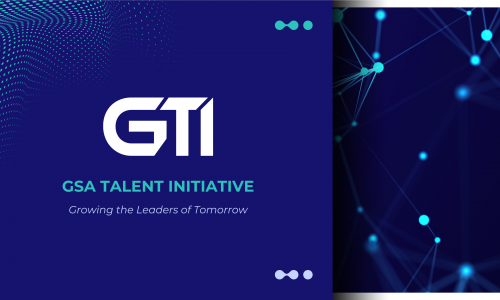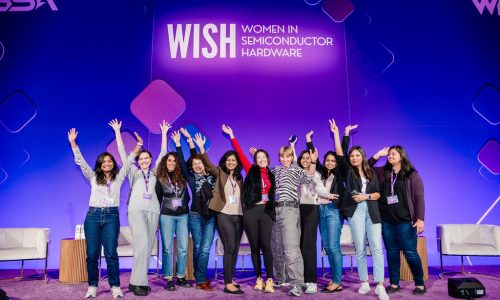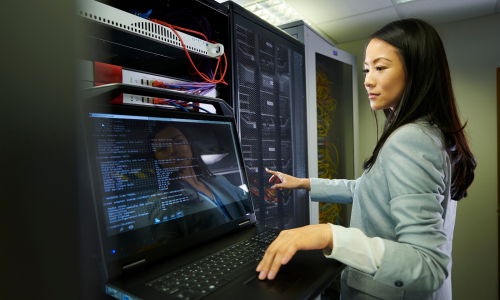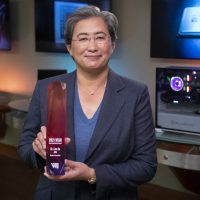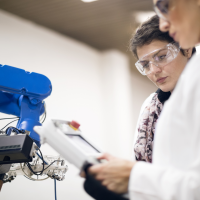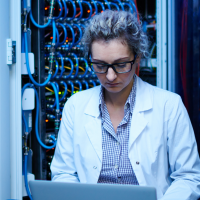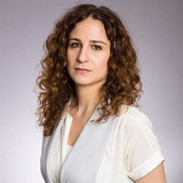
Dr. Giorgia Longobardi
Founder & CEO of
Cambridge GaN devices Ltd.
In this edition of the WLI Entrepreneurial Blog, we had the pleasure of speaking with Dr. Giorgia Longobardi, Founder & CEO of a Cambridge UK-based fabless start-up that designs, develops, and commercializes energy-efficient GaN-based power devices to make greener electronics possible. I hope you enjoy reading this interview and learning about her journey.
Q: Tell us about your background and why you joined the industry.
I graduated from the University of Naples in Italy in 2010 with a degree in Electrical Engineering. One of my required classes was Physics of Semiconductors, which I found extremely interesting. As part of my master’s degree thesis project, I had the opportunity to join the High Voltage and Microelectronics Group at University of Cambridge sponsored by an Erasmus project. I spoke very little English then, so I had to learn the language and was exposed to a very different culture.
For my PhD, I had the choice between two areas of study at Cambridge: one that an expert group had been working on for more than 30 years and the other one was a new, unknown path. I picked the latter, which focused on a novel semiconductor material for energy efficient power devices. This is when I started working on gallium nitride (GaN). Power systems based on GaN devices can deliver much higher energy efficiencies (in excess to 99%). My studies focused on the physics of semiconductors and the relationship between electric carrier movement within the semiconductor and its electrical performance in power systems subject to high voltage and power. My work looked at how ultimately an advanced design of a GaN-power device can help improve its performance. I did my PhD in collaboration with one of the major semiconductor companies, NXP Semiconductors. This gave me the ability to keep the real-life products in mind during my research at Cambridge.
Q: Tell us about your vision for Cambridge GaN Devices and what led you to start the company.
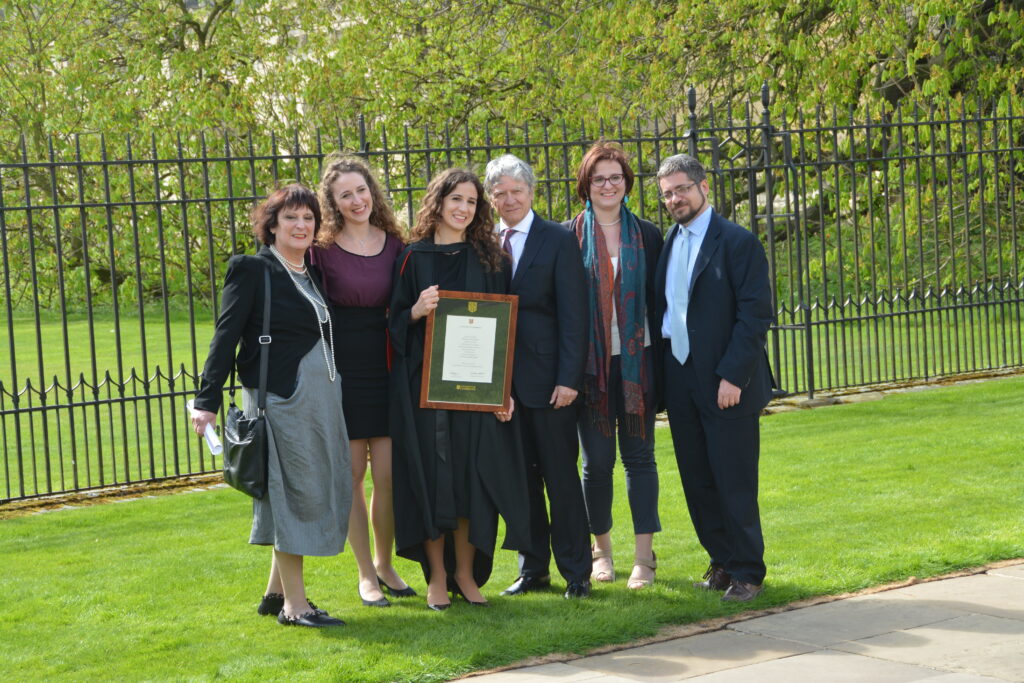
I completed my PhD in 2014 and followed that with two fellowships. One was within Cambridge (a Junior Research Fellowship at Gonville and Caius College) and another one in Japan, where I spent 1 year, in collaboration with the Royal Society and the Japanese Society for the promotion of Science. I had the desire to see a different part of the world and there, I had opportunity to work in a research lab collaborating with Kyushu Institute of Technology and Toshiba. In between my fellowships, I consulted with Infineon and Vishay. My research being in collaboration with universities and industry companies was very valuable. Additionally, by working in different countries, I gained a deeper understanding of what was important in specific markets.
Following my research and consulting, I along with Florin Udrea, professor of semiconductors at Cambridge, founded Cambridge GaN Devices Limited in 2016 after wining the first prize at the Cambridge University post doc competition. We invented a solution that was effectively solving all of the issues we were seeing in the state-of-the-art technology. We now have 39 patent applications covering a range of solutions in applications that range from consumer electronics to data centres.
My vision for the company is to be a leader in GaN and to be a committed player in a greener world through efficient power electronics. By bringing together technical knowledge and business expertise, we understand what customers need throughout the value chain. And, we can deliver a better, more efficient solution – for mobile phones, computers, gaming consoles and data centers. In fact, the last application has the potential to save megatons of CO2 emissions and help solving the climate crisis. We believe in using resources responsibly to create future technologies.
Q: What excited you about entrepreneurship and what are the most exciting and interesting aspects of your job?
I didn’t know how encompassing entrepreneurship was when I started. It’s about innovation and the people who work with me, our collective impact on creating the most innovative solutions while working towards a greener future, and having the possibility to change things – to follow my vision taking it all the way to market. This is an incredible opportunity.
Sometimes I look at the chips sitting on my desk, and I think about all the simulations that started 10 years ago and look at how far we have come. Now, we have a product, customers, and a wealth of knowledge in our employees. A start-up also has its ups and downs. You get good news followed by bad news. As a leader and technologist, I have to find solutions and the best way to handle the flow of business. Being an entrepreneur is a different pace than any other type of job but I find that challenging and beautiful all at the same time.
Q: Did you imagine that one day you would start a company and be a CEO?
I didn’t think about being an entrepreneur or CEO because I wasn’t exposed to it.
I started to consider it once I joined the Cambridge University group. They have an ecosystem that supports start-ups, which gave me exposure to these types of discussions.
All I knew, early on, was that I wanted to do something different and have my voice heard. It was innately important for me to do something that helps people in general. It’s about believing – an entrepreneur has to BELIEVE!
Q: What were/are the challenges of being a female entrepreneur?
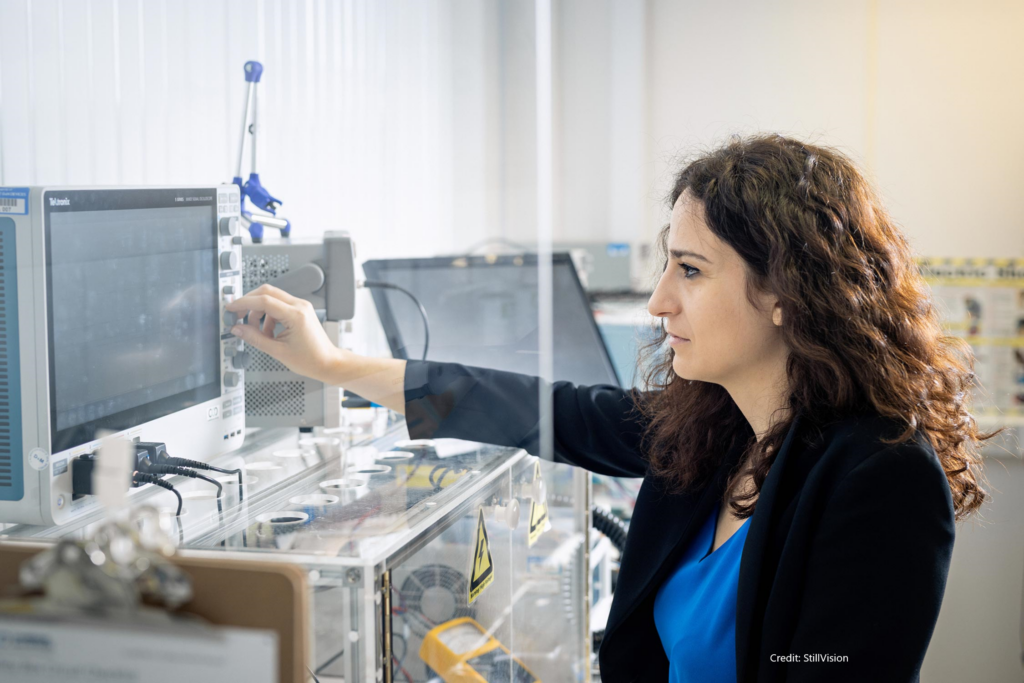
Unfortunately, there are still quite a few challenges. I see that things are changing because there is discussion on the topic, but it is still challenging when one is the only woman on the board or in a room of investors or customers.
In my case, both power electronics and the investment world are very male-dominated. But, I am lucky because my investors are incredibly supportive. It is hard though when you are trying to build your confidence as a young entrepreneur and no one in the room looks like you. It can feel very isolating.
I think the journey for increasing the number of female entrepreneurs is still long. There is significant support in mentoring women but there is still a lot to do to help them with financial resources they need to follow their vision. It’s people believing in you that is necessary.
Q: What advice do you have for young women who would like to become entrepreneurs?
I would advise them to know their strengths and why they want to be an entrepreneur. It is different for everyone and knowing your personal edge in the business and acknowledging when you need to bring in complementary skills is what will make a person successful. I think sometimes women try to model the behavior or personalities they see in front of them, which in technology, is often men. Women need to rely on their own identity and power, and as a female entrepreneur, what they bring to the table – as a technologist and a leader.
Q: What do you think we can do to make the semiconductor industry more attractive and retain women?
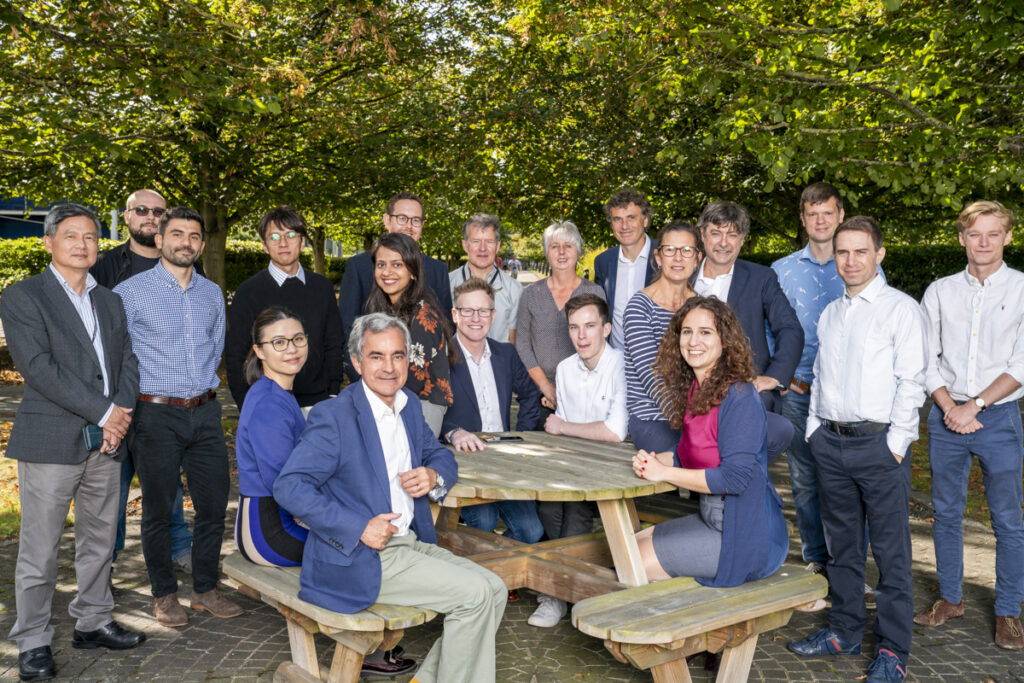
I think it is about having role models, which is another topic that is widely discussed. There need to be women speaking at events. It is also about education at a younger age and disassociating that STEM is a person working in a lab with a lab jacket. It is also about linking the STEM subjects and semiconductors with the final applications and mega trends. I do that often because for example, an investor might not know what GaN or silicon carbide is so it is key to associate that with the final application. Marketing materials and videos are useful to see what it is that semiconductors are doing and make the connection of, “what does it actually mean to me”. The semiconductor chip shortage might actually help our cause and encourage more young people to consider a career in STEM especially now that people are more aware of everything semiconductors do in our world.
Q: How do you encourage men to become allies in gender equality?
Communication is extremely important. I think it helps to share perspectives on how certain actions affect women and ask for a change. Ultimately, we must reach the conclusion that having a diverse perspective is imperative to innovation and a company’s success.
Q: How do you imagine the world will change in the next 10-30 years?
In terms of gender equality, I think in 10-20 years things are going to be different because of all the work that has been put into educating young women. Today, people are pointing out where things need to change. In 10 years, I think we will have stronger women but we will ultimately see the result of building that confidence in 20 years. This is a cultural change and it will take some time. We also need to educate the young boys, not only the young girls. The language used, respect of the girls, trust, listening are all things both genders must learn.
In terms of where I personally want to be, I would like to see humanity share in a greater respect for and protection of the environment, and a world where the needs of the people and opinions on how things should change are considered. I would also like to see ONE WORLD working together towards common goals. We’ve seen this some with the pandemic in the exchanging of ways and working together to grow technologically. Personally, I hope to have achieved my short-term goals, which are to have an impact within the semiconductor industry for the sake of employing a greener technology. I want to be a leader that improves the world and I like having an ecosystem around me that shares that vision.
Q: What advice would you give your younger self?
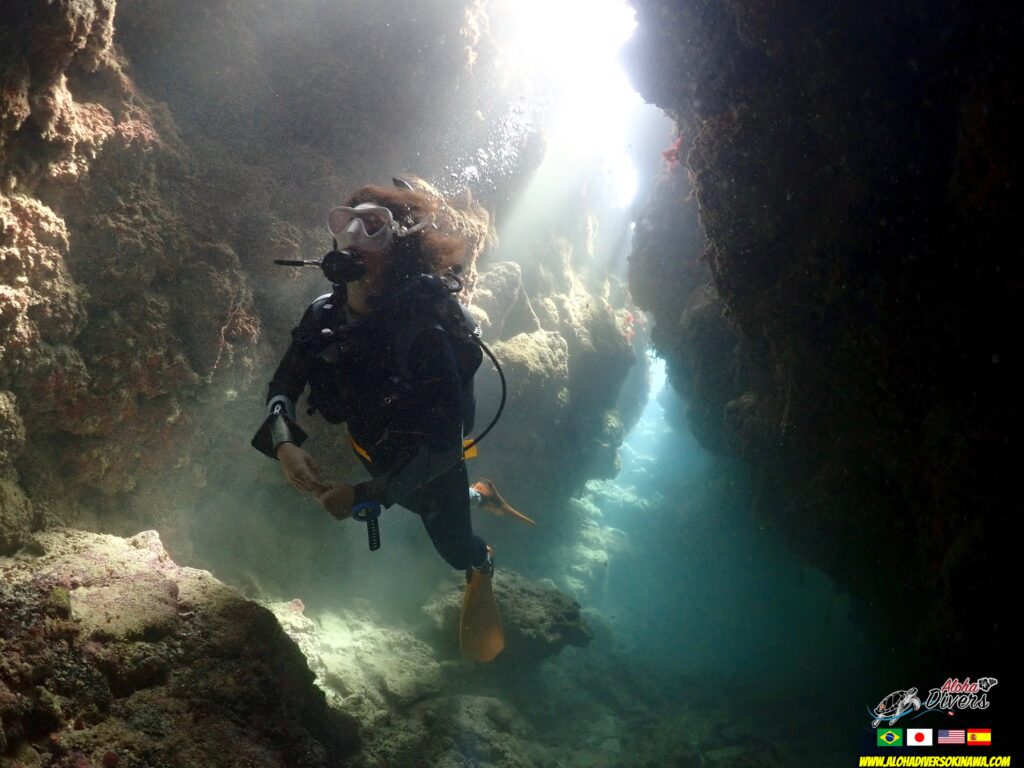
I would tell myself to look at my own strengths – who are you and why are you different? It is important to not try to be someone that you are not. Just be yourself because that is where and when powerful things happen. Building confidence takes time so realize that even though it is challenging, that confidence will come. This advice really goes for everyone, not just women.
Q: The most important question of all…outside of your laptop and phone, what’s the most important thing you have with you?
It is my diving license. I could not live without scuba diving, which I’ve been doing for 12 years! Some of the most beautiful places I’ve scuba dived are Belize – in the blue hole, where I saw my first sharks – and Malta. Everywhere I travel, I try to find time to scuba dive. I love everything about it – the sea, the fish, the experience – it is beautiful! I feel like I am discovering a completely new world. I’d love to become a tech diver one day and would move by the sea to do that.
Thank you, Giorgia, for taking the time to talk to us and offer great advice to women engineers and entrepreneurs. We enjoyed our lively conversation and are so inspired by your journey in the semiconductor industry (and your fearlessness in swimming with sharks)! To learn more about GSA’s Women’s Leadership Initiative and get involved, please visit
https://designthesolution.org/.
Dr. Giorgia Longobardi, CEO of CGD, is an experienced engineer with international practice working on GaN power devices design and characterisation. As the inventor of high impact patents in the field of GaN power devices, Giorgia has the unique blend of academic and business know-how as one of her biggest strengths.
During her PhD in power devices at Cambridge University, Giorgia worked on international projects with top semiconductor companies, through which she learned about different cultures operating in this field and gained experience managing and budgeting multi-partner projects. Before that, Giorgia led the GaN power devices team at the Cambridge University engineering department.
 Dr. Giorgia Longobardi
Founder & CEO of Cambridge GaN devices Ltd.
In this edition of the WLI Entrepreneurial Blog, we had the pleasure of speaking with Dr. Giorgia Longobardi, Founder & CEO of a Cambridge UK-based fabless start-up that designs, develops, and commercializes energy-efficient GaN-based power devices to make greener electronics possible. I hope you enjoy reading this interview and learning about her journey.
Q: Tell us about your background and why you joined the industry.
I graduated from the University of Naples in Italy in 2010 with a degree in Electrical Engineering. One of my required classes was Physics of Semiconductors, which I found extremely interesting. As part of my master’s degree thesis project, I had the opportunity to join the High Voltage and Microelectronics Group at University of Cambridge sponsored by an Erasmus project. I spoke very little English then, so I had to learn the language and was exposed to a very different culture.
For my PhD, I had the choice between two areas of study at Cambridge: one that an expert group had been working on for more than 30 years and the other one was a new, unknown path. I picked the latter, which focused on a novel semiconductor material for energy efficient power devices. This is when I started working on gallium nitride (GaN). Power systems based on GaN devices can deliver much higher energy efficiencies (in excess to 99%). My studies focused on the physics of semiconductors and the relationship between electric carrier movement within the semiconductor and its electrical performance in power systems subject to high voltage and power. My work looked at how ultimately an advanced design of a GaN-power device can help improve its performance. I did my PhD in collaboration with one of the major semiconductor companies, NXP Semiconductors. This gave me the ability to keep the real-life products in mind during my research at Cambridge.
Q: Tell us about your vision for Cambridge GaN Devices and what led you to start the company.
Dr. Giorgia Longobardi
Founder & CEO of Cambridge GaN devices Ltd.
In this edition of the WLI Entrepreneurial Blog, we had the pleasure of speaking with Dr. Giorgia Longobardi, Founder & CEO of a Cambridge UK-based fabless start-up that designs, develops, and commercializes energy-efficient GaN-based power devices to make greener electronics possible. I hope you enjoy reading this interview and learning about her journey.
Q: Tell us about your background and why you joined the industry.
I graduated from the University of Naples in Italy in 2010 with a degree in Electrical Engineering. One of my required classes was Physics of Semiconductors, which I found extremely interesting. As part of my master’s degree thesis project, I had the opportunity to join the High Voltage and Microelectronics Group at University of Cambridge sponsored by an Erasmus project. I spoke very little English then, so I had to learn the language and was exposed to a very different culture.
For my PhD, I had the choice between two areas of study at Cambridge: one that an expert group had been working on for more than 30 years and the other one was a new, unknown path. I picked the latter, which focused on a novel semiconductor material for energy efficient power devices. This is when I started working on gallium nitride (GaN). Power systems based on GaN devices can deliver much higher energy efficiencies (in excess to 99%). My studies focused on the physics of semiconductors and the relationship between electric carrier movement within the semiconductor and its electrical performance in power systems subject to high voltage and power. My work looked at how ultimately an advanced design of a GaN-power device can help improve its performance. I did my PhD in collaboration with one of the major semiconductor companies, NXP Semiconductors. This gave me the ability to keep the real-life products in mind during my research at Cambridge.
Q: Tell us about your vision for Cambridge GaN Devices and what led you to start the company.
 I completed my PhD in 2014 and followed that with two fellowships. One was within Cambridge (a Junior Research Fellowship at Gonville and Caius College) and another one in Japan, where I spent 1 year, in collaboration with the Royal Society and the Japanese Society for the promotion of Science. I had the desire to see a different part of the world and there, I had opportunity to work in a research lab collaborating with Kyushu Institute of Technology and Toshiba. In between my fellowships, I consulted with Infineon and Vishay. My research being in collaboration with universities and industry companies was very valuable. Additionally, by working in different countries, I gained a deeper understanding of what was important in specific markets.
Following my research and consulting, I along with Florin Udrea, professor of semiconductors at Cambridge, founded Cambridge GaN Devices Limited in 2016 after wining the first prize at the Cambridge University post doc competition. We invented a solution that was effectively solving all of the issues we were seeing in the state-of-the-art technology. We now have 39 patent applications covering a range of solutions in applications that range from consumer electronics to data centres.
My vision for the company is to be a leader in GaN and to be a committed player in a greener world through efficient power electronics. By bringing together technical knowledge and business expertise, we understand what customers need throughout the value chain. And, we can deliver a better, more efficient solution – for mobile phones, computers, gaming consoles and data centers. In fact, the last application has the potential to save megatons of CO2 emissions and help solving the climate crisis. We believe in using resources responsibly to create future technologies.
Q: What excited you about entrepreneurship and what are the most exciting and interesting aspects of your job?
I didn’t know how encompassing entrepreneurship was when I started. It’s about innovation and the people who work with me, our collective impact on creating the most innovative solutions while working towards a greener future, and having the possibility to change things – to follow my vision taking it all the way to market. This is an incredible opportunity.
Sometimes I look at the chips sitting on my desk, and I think about all the simulations that started 10 years ago and look at how far we have come. Now, we have a product, customers, and a wealth of knowledge in our employees. A start-up also has its ups and downs. You get good news followed by bad news. As a leader and technologist, I have to find solutions and the best way to handle the flow of business. Being an entrepreneur is a different pace than any other type of job but I find that challenging and beautiful all at the same time.
Q: Did you imagine that one day you would start a company and be a CEO?
I didn’t think about being an entrepreneur or CEO because I wasn’t exposed to it.
I started to consider it once I joined the Cambridge University group. They have an ecosystem that supports start-ups, which gave me exposure to these types of discussions.
All I knew, early on, was that I wanted to do something different and have my voice heard. It was innately important for me to do something that helps people in general. It’s about believing – an entrepreneur has to BELIEVE!
Q: What were/are the challenges of being a female entrepreneur?
I completed my PhD in 2014 and followed that with two fellowships. One was within Cambridge (a Junior Research Fellowship at Gonville and Caius College) and another one in Japan, where I spent 1 year, in collaboration with the Royal Society and the Japanese Society for the promotion of Science. I had the desire to see a different part of the world and there, I had opportunity to work in a research lab collaborating with Kyushu Institute of Technology and Toshiba. In between my fellowships, I consulted with Infineon and Vishay. My research being in collaboration with universities and industry companies was very valuable. Additionally, by working in different countries, I gained a deeper understanding of what was important in specific markets.
Following my research and consulting, I along with Florin Udrea, professor of semiconductors at Cambridge, founded Cambridge GaN Devices Limited in 2016 after wining the first prize at the Cambridge University post doc competition. We invented a solution that was effectively solving all of the issues we were seeing in the state-of-the-art technology. We now have 39 patent applications covering a range of solutions in applications that range from consumer electronics to data centres.
My vision for the company is to be a leader in GaN and to be a committed player in a greener world through efficient power electronics. By bringing together technical knowledge and business expertise, we understand what customers need throughout the value chain. And, we can deliver a better, more efficient solution – for mobile phones, computers, gaming consoles and data centers. In fact, the last application has the potential to save megatons of CO2 emissions and help solving the climate crisis. We believe in using resources responsibly to create future technologies.
Q: What excited you about entrepreneurship and what are the most exciting and interesting aspects of your job?
I didn’t know how encompassing entrepreneurship was when I started. It’s about innovation and the people who work with me, our collective impact on creating the most innovative solutions while working towards a greener future, and having the possibility to change things – to follow my vision taking it all the way to market. This is an incredible opportunity.
Sometimes I look at the chips sitting on my desk, and I think about all the simulations that started 10 years ago and look at how far we have come. Now, we have a product, customers, and a wealth of knowledge in our employees. A start-up also has its ups and downs. You get good news followed by bad news. As a leader and technologist, I have to find solutions and the best way to handle the flow of business. Being an entrepreneur is a different pace than any other type of job but I find that challenging and beautiful all at the same time.
Q: Did you imagine that one day you would start a company and be a CEO?
I didn’t think about being an entrepreneur or CEO because I wasn’t exposed to it.
I started to consider it once I joined the Cambridge University group. They have an ecosystem that supports start-ups, which gave me exposure to these types of discussions.
All I knew, early on, was that I wanted to do something different and have my voice heard. It was innately important for me to do something that helps people in general. It’s about believing – an entrepreneur has to BELIEVE!
Q: What were/are the challenges of being a female entrepreneur?
 Unfortunately, there are still quite a few challenges. I see that things are changing because there is discussion on the topic, but it is still challenging when one is the only woman on the board or in a room of investors or customers.
In my case, both power electronics and the investment world are very male-dominated. But, I am lucky because my investors are incredibly supportive. It is hard though when you are trying to build your confidence as a young entrepreneur and no one in the room looks like you. It can feel very isolating.
I think the journey for increasing the number of female entrepreneurs is still long. There is significant support in mentoring women but there is still a lot to do to help them with financial resources they need to follow their vision. It’s people believing in you that is necessary.
Q: What advice do you have for young women who would like to become entrepreneurs?
I would advise them to know their strengths and why they want to be an entrepreneur. It is different for everyone and knowing your personal edge in the business and acknowledging when you need to bring in complementary skills is what will make a person successful. I think sometimes women try to model the behavior or personalities they see in front of them, which in technology, is often men. Women need to rely on their own identity and power, and as a female entrepreneur, what they bring to the table – as a technologist and a leader.
Q: What do you think we can do to make the semiconductor industry more attractive and retain women?
Unfortunately, there are still quite a few challenges. I see that things are changing because there is discussion on the topic, but it is still challenging when one is the only woman on the board or in a room of investors or customers.
In my case, both power electronics and the investment world are very male-dominated. But, I am lucky because my investors are incredibly supportive. It is hard though when you are trying to build your confidence as a young entrepreneur and no one in the room looks like you. It can feel very isolating.
I think the journey for increasing the number of female entrepreneurs is still long. There is significant support in mentoring women but there is still a lot to do to help them with financial resources they need to follow their vision. It’s people believing in you that is necessary.
Q: What advice do you have for young women who would like to become entrepreneurs?
I would advise them to know their strengths and why they want to be an entrepreneur. It is different for everyone and knowing your personal edge in the business and acknowledging when you need to bring in complementary skills is what will make a person successful. I think sometimes women try to model the behavior or personalities they see in front of them, which in technology, is often men. Women need to rely on their own identity and power, and as a female entrepreneur, what they bring to the table – as a technologist and a leader.
Q: What do you think we can do to make the semiconductor industry more attractive and retain women?
 I think it is about having role models, which is another topic that is widely discussed. There need to be women speaking at events. It is also about education at a younger age and disassociating that STEM is a person working in a lab with a lab jacket. It is also about linking the STEM subjects and semiconductors with the final applications and mega trends. I do that often because for example, an investor might not know what GaN or silicon carbide is so it is key to associate that with the final application. Marketing materials and videos are useful to see what it is that semiconductors are doing and make the connection of, “what does it actually mean to me”. The semiconductor chip shortage might actually help our cause and encourage more young people to consider a career in STEM especially now that people are more aware of everything semiconductors do in our world.
Q: How do you encourage men to become allies in gender equality?
Communication is extremely important. I think it helps to share perspectives on how certain actions affect women and ask for a change. Ultimately, we must reach the conclusion that having a diverse perspective is imperative to innovation and a company’s success.
Q: How do you imagine the world will change in the next 10-30 years?
In terms of gender equality, I think in 10-20 years things are going to be different because of all the work that has been put into educating young women. Today, people are pointing out where things need to change. In 10 years, I think we will have stronger women but we will ultimately see the result of building that confidence in 20 years. This is a cultural change and it will take some time. We also need to educate the young boys, not only the young girls. The language used, respect of the girls, trust, listening are all things both genders must learn.
In terms of where I personally want to be, I would like to see humanity share in a greater respect for and protection of the environment, and a world where the needs of the people and opinions on how things should change are considered. I would also like to see ONE WORLD working together towards common goals. We’ve seen this some with the pandemic in the exchanging of ways and working together to grow technologically. Personally, I hope to have achieved my short-term goals, which are to have an impact within the semiconductor industry for the sake of employing a greener technology. I want to be a leader that improves the world and I like having an ecosystem around me that shares that vision.
Q: What advice would you give your younger self?
I think it is about having role models, which is another topic that is widely discussed. There need to be women speaking at events. It is also about education at a younger age and disassociating that STEM is a person working in a lab with a lab jacket. It is also about linking the STEM subjects and semiconductors with the final applications and mega trends. I do that often because for example, an investor might not know what GaN or silicon carbide is so it is key to associate that with the final application. Marketing materials and videos are useful to see what it is that semiconductors are doing and make the connection of, “what does it actually mean to me”. The semiconductor chip shortage might actually help our cause and encourage more young people to consider a career in STEM especially now that people are more aware of everything semiconductors do in our world.
Q: How do you encourage men to become allies in gender equality?
Communication is extremely important. I think it helps to share perspectives on how certain actions affect women and ask for a change. Ultimately, we must reach the conclusion that having a diverse perspective is imperative to innovation and a company’s success.
Q: How do you imagine the world will change in the next 10-30 years?
In terms of gender equality, I think in 10-20 years things are going to be different because of all the work that has been put into educating young women. Today, people are pointing out where things need to change. In 10 years, I think we will have stronger women but we will ultimately see the result of building that confidence in 20 years. This is a cultural change and it will take some time. We also need to educate the young boys, not only the young girls. The language used, respect of the girls, trust, listening are all things both genders must learn.
In terms of where I personally want to be, I would like to see humanity share in a greater respect for and protection of the environment, and a world where the needs of the people and opinions on how things should change are considered. I would also like to see ONE WORLD working together towards common goals. We’ve seen this some with the pandemic in the exchanging of ways and working together to grow technologically. Personally, I hope to have achieved my short-term goals, which are to have an impact within the semiconductor industry for the sake of employing a greener technology. I want to be a leader that improves the world and I like having an ecosystem around me that shares that vision.
Q: What advice would you give your younger self?
 I would tell myself to look at my own strengths – who are you and why are you different? It is important to not try to be someone that you are not. Just be yourself because that is where and when powerful things happen. Building confidence takes time so realize that even though it is challenging, that confidence will come. This advice really goes for everyone, not just women.
Q: The most important question of all…outside of your laptop and phone, what’s the most important thing you have with you?
It is my diving license. I could not live without scuba diving, which I’ve been doing for 12 years! Some of the most beautiful places I’ve scuba dived are Belize – in the blue hole, where I saw my first sharks – and Malta. Everywhere I travel, I try to find time to scuba dive. I love everything about it – the sea, the fish, the experience – it is beautiful! I feel like I am discovering a completely new world. I’d love to become a tech diver one day and would move by the sea to do that.
Thank you, Giorgia, for taking the time to talk to us and offer great advice to women engineers and entrepreneurs. We enjoyed our lively conversation and are so inspired by your journey in the semiconductor industry (and your fearlessness in swimming with sharks)! To learn more about GSA’s Women’s Leadership Initiative and get involved, please visit https://designthesolution.org/.
Dr. Giorgia Longobardi, CEO of CGD, is an experienced engineer with international practice working on GaN power devices design and characterisation. As the inventor of high impact patents in the field of GaN power devices, Giorgia has the unique blend of academic and business know-how as one of her biggest strengths.
During her PhD in power devices at Cambridge University, Giorgia worked on international projects with top semiconductor companies, through which she learned about different cultures operating in this field and gained experience managing and budgeting multi-partner projects. Before that, Giorgia led the GaN power devices team at the Cambridge University engineering department.
I would tell myself to look at my own strengths – who are you and why are you different? It is important to not try to be someone that you are not. Just be yourself because that is where and when powerful things happen. Building confidence takes time so realize that even though it is challenging, that confidence will come. This advice really goes for everyone, not just women.
Q: The most important question of all…outside of your laptop and phone, what’s the most important thing you have with you?
It is my diving license. I could not live without scuba diving, which I’ve been doing for 12 years! Some of the most beautiful places I’ve scuba dived are Belize – in the blue hole, where I saw my first sharks – and Malta. Everywhere I travel, I try to find time to scuba dive. I love everything about it – the sea, the fish, the experience – it is beautiful! I feel like I am discovering a completely new world. I’d love to become a tech diver one day and would move by the sea to do that.
Thank you, Giorgia, for taking the time to talk to us and offer great advice to women engineers and entrepreneurs. We enjoyed our lively conversation and are so inspired by your journey in the semiconductor industry (and your fearlessness in swimming with sharks)! To learn more about GSA’s Women’s Leadership Initiative and get involved, please visit https://designthesolution.org/.
Dr. Giorgia Longobardi, CEO of CGD, is an experienced engineer with international practice working on GaN power devices design and characterisation. As the inventor of high impact patents in the field of GaN power devices, Giorgia has the unique blend of academic and business know-how as one of her biggest strengths.
During her PhD in power devices at Cambridge University, Giorgia worked on international projects with top semiconductor companies, through which she learned about different cultures operating in this field and gained experience managing and budgeting multi-partner projects. Before that, Giorgia led the GaN power devices team at the Cambridge University engineering department. 